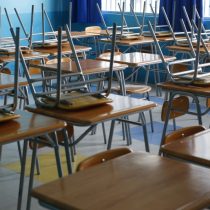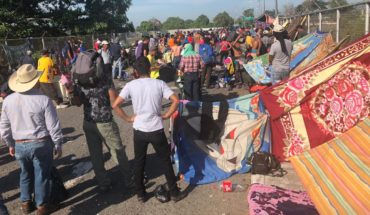
Many teachers, students and families took part in the untimely and impromptu migration to distance education, fostered in reaction to the health closure of educational establishments. We did our best to adapt to the mantra that time cannot be wasted and learning must be achieved. Sometimes even relativizing the health and integrity of educational communities.
Despite the wishes of the authorities, the return to face-to-face classes is not close. In addition, the school experience has become very heterogeneous. From families strained by a multitude of schoolwork, to paralyzed educational communities to new notice, a wide range of conflicted scenarios are deployed. In this context, flexibility and graduality increasingly appear as important criteria, but always under the prism that back-to-schoolness should occur as soon (and efficiently) as possible.
Is it appropriate to sustain the emergency rate, desire for speed, or performance expectations in, and even beyond, current conditions of education?
This question should be put in the general context of the problem of social speed. Acceleration has been the central theme of modern culture, although a current that defends the “slow pace” has always been present in a minority way. Reducing working time to control exploitation and overproduction, encourage non-consumer leisure time, are not new ideas. Whether it’s from the fight against exploitation or the complaint against speed, the use of time has been and is a matter of concern and social criticism.
Today, the slowdown at which we are forced responds to the untimely disruption of social flows caused by a global health emergency which, although much faster than previous pandemics, has been deployed slowly and protractedly over time. This forced slowdown calls into question both security and the economy. But it also suggests a rational option for the future: we cannot continue to deny the social and ecological consequences of adherence to speed, overexploitation and maximum performance. To paraphrase Latour, the modern ones are discovering themselves terrestrial.
In this context, formal education is a highly stressed space between the effective use of resources and the best possible performance, on the one hand, and the “loss” of time, on the other (whether due to a pace that is considered too calm or a sheathing of time). This tension is exacerbated by the structure of teaching work, abundant in obligations and always short of time, and the logic of contemporary accountability, with little room for the detached and autonomous use of time. But, however much it is deed and controlled, the school, in its character of space where thought must be developed in some way, demands and resents the lack of a more accommodating time.
Today, a period of crisis, time is suspended for schools and the minimum conditions of separation between work, study and family are not met. Is it possible to keep up with the incessant pace of old school normality? Is it even worth the effort? Perhaps, not only suspending the Simce is a reasonable immediate measure, but also, in the long run, the slowdown and de-intensification of school work. Perhaps we should take the philosophy of slow education more seriously, and stop using time as an arbitrary iron mold of educational processes and think of reasonable ways to give and “waste” time reasonably, based on a better school experience and better preparation for contingencies that our society will not fail to go through.
It has been said that we will overcome the current crisis in solidarity and if we take care of each other. For the school context, there has been talk of safety, equity and graduality. But, along the way, we can do a lot of things quickly, but few well, if there’s no time available. Moreover, have time to unsand processes and correct paths taken. It may be necessary, for a future sustainable life, more time to think and do things calmly.
Slowing down is no easy matter, we have all Modernity against us. It’s not a problem of individual stylistic decisions, it’s a political problem. It’s also an ambiguous problem: speed and slow pace are not really good or bad things. Today, the crisis is both leading to job losses and more timeand intensive work among those who keep the workforce busy. But this crisis suggests that the opposite direction, to lower the intensity of social life in a rational, dignified and equitable manner, is an old alternative to re-examine.
The content poured into this opinion column is the sole responsibility of its author, and does not necessarily reflect the editorial line or position of El Mostrador.



![translated from Spanish: [VIDEO] Bolivian Armed Forces in the face of protests: “We will never face the people” translated from Spanish: [VIDEO] Bolivian Armed Forces in the face of protests: “We will never face the people”](https://ananoticias.com/wp-content/uploads/2019/11/translated-from-Spanish-VIDEO-Bolivian-Armed-Forces-in-the-face-370x215.jpg)

